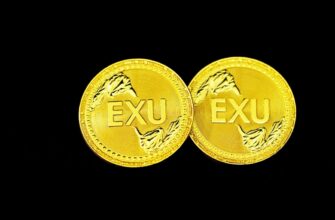## Introduction
With the explosive growth of the NFT market, Australian investors are increasingly asking: **Is NFT profit taxable in Australia in 2025?** As digital assets continue evolving, the Australian Taxation Office (ATO) has clarified that NFT transactions fall squarely under existing tax frameworks. This guide breaks down everything you need to know about NFT taxation for 2025 – from capital gains rules to trading as a business. Always consult a registered tax professional for personalised advice.
## How the ATO Treats NFTs in 2025
The ATO classifies NFTs as **CGT (Capital Gains Tax) assets**, similar to cryptocurrencies or shares. Key principles for 2025 include:
– NFTs are considered “property” for tax purposes, regardless of artistic or collectible nature
– Tax obligations trigger upon disposal (sale, trade, or exchange)
– Both Australian residents and foreign investors selling to Australians face tax implications
– The 12-month CGT discount remains applicable for individuals holding NFTs long-term
## When NFT Profits Become Taxable Events
You’ll owe taxes in these common scenarios:
1. **Selling NFTs for profit**: Capital gains apply if sale price exceeds acquisition cost
2. **Trading NFTs**: Swapping one NFT for another is treated as a disposal at market value
3. **Using NFTs commercially**: Earning royalties or licensing content creates ordinary income
4. **Converting to fiat currency**: AUD withdrawals trigger tax calculation
5. **Business liquidation**: NFT sales during business wind-ups count as taxable income
## Calculating Your NFT Capital Gains
Follow this 4-step process for 2025 returns:
1. **Determine cost base**: Purchase price + gas fees + platform costs + enhancement expenses
2. **Calculate capital gain**: Disposal value minus cost base
3. **Apply discounts**: 50% reduction for individuals holding assets >12 months
4. **Include in taxable income**: Add net gain to annual income, taxed at marginal rates
*Example: You buy an NFT for $2,000 (including fees) and sell for $10,000 after 14 months. Taxable gain = ($10,000 – $2,000) × 50% = $4,000.*
## NFT Trading as a Business: Different Rules
If your activities qualify as a business, different tax treatments apply:
– **Business indicators**: Frequent trading, commercial premises, business registration
– **Tax implications**:
– Profits treated as ordinary income (no CGT discount)
– Losses deductible against other income
– GST registration required if turnover exceeds $75,000
– **Allowable deductions**:
– Platform subscription fees
– Blockchain transaction costs
– Marketing expenses
– Professional advisory fees
## Record-Keeping Requirements for NFT Taxes
Maintain these records for 5 years:
– Dated transaction histories from all platforms
– Wallet addresses and transaction IDs
– Receipts for acquisition costs and improvements
– Market value evidence at transaction time (screenshots, exchange rates)
– Documentation of NFT utility or business use cases
## NFT Tax Losses and Offsetting Strategies
Capital losses can reduce your tax burden:
– Offset NFT losses against other capital gains (e.g., shares or property)
– Carry forward unused losses indefinitely
– Losses from hobby activities aren’t deductible
– **Warning**: Wash sales (rapid repurchases) may be disallowed under anti-avoidance rules
## How to Report NFT Income on 2025 Tax Returns
Reporting methods vary by activity type:
| **Activity Type** | **Tax Form Section** | **Key Requirements** |
|——————-|———————-|———————-|
| Capital Gains | Item 18 (Capital gains) | Net capital gain calculation |
| Business Income | Schedule C (Business) | Profit/loss statement with deductions |
| Royalties | Item 24 (Royalties) | Documentation of licensing agreements |
## Future NFT Tax Developments for 2025
Expected regulatory changes include:
– Clarification on DeFi and NFT staking rewards
– Tighter reporting requirements for exchanges
– Potential distinctions between collectible vs. utility NFTs
– International coordination on crypto asset frameworks
## Frequently Asked Questions (FAQs)
**Q: Is NFT profit taxable in Australia if I’m just a hobbyist?**
A: Yes. The ATO taxes profits regardless of intent, though occasional sellers may qualify for CGT discounts.
**Q: How is NFT profit taxed if I hold less than 12 months?**
A: Full capital gains apply with no discount – added directly to your taxable income.
**Q: Are NFT gas fees deductible?**
A: Yes. Acquisition fees add to cost base; disposal fees reduce sale proceeds.
**Q: Do I pay tax when transferring NFTs between my wallets?**
A: No. Transfers to self-controlled wallets aren’t disposals. Ensure identical ownership.
**Q: What if I create and sell my own NFTs?**
A: Sales constitute ordinary income. Deduct creation costs (software, commissions, marketing).
**Q: How does the ATO track NFT profits?**
A: Through data matching with exchanges, blockchain analysis, and mandatory transaction reporting.
**Q: Can I use crypto losses to offset NFT gains?**
A: Yes. All crypto assets fall under CGT rules, allowing cross-asset offsetting.
## Conclusion
NFT profits **are absolutely taxable in Australia in 2025** under established CGT and income tax rules. With the ATO increasing digital asset surveillance, proper reporting is essential. Maintain meticulous records, understand business vs. investment distinctions, and leverage available discounts. As regulations evolve, consult a crypto-savvy accountant to optimize your position and avoid penalties. The key takeaway? In Australia’s tax landscape, there’s no such thing as “digital anonymity” when profits are involved.








